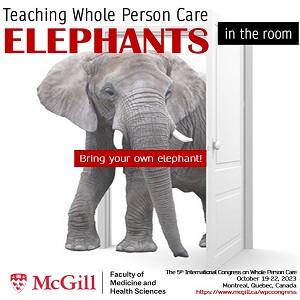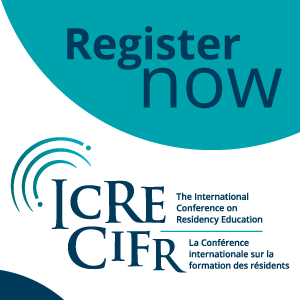Experienced physicians benefit from analyzing initial diagnostic hypotheses
DOI :
https://doi.org/10.36834/cmej.36589Mots-clés :
medical error, cognitive processing, analytic processingRésumé
Background: Most incorrect diagnoses involve at least one cognitive error, of which premature closure is the most prevalent. While metacognitive strategies can mitigate premature closure in inexperienced learners, these are rarely studied in experienced physicians. Our objective here was to evaluate the effect of analytic information processing on diagnostic performance of nephrologists and nephrology residents.
Methods: We asked nine nephrologists and six nephrology residents at the University of Calgary and Glasgow University to diagnose ten nephrology cases. We provided presenting features along with contextual information, after which we asked for an initial diagnosis. We then primed participants to use either hypothetico-deductive reasoning or scheme-inductive reasoning to analyze the remaining case data and generate a final diagnosis.
Results: After analyzing initial hypotheses, both nephrologists and residents improved the accuracy of final diagnoses (31.1% vs. 65.6%, p < 0.001, and 40.0% vs. 70.0%, p < 0.001, respectively). We found a significant interaction between experience and analytic processing strategy (p = 0.002): nephrology residents had significantly increased odds of diagnostic success when using scheme-inductive reasoning (odds ratio [95% confidence interval] 5.69 [1.59, 20.33], p = 0.007), whereas the performance of experienced nephrologists did not differ between strategies (odds ratio 0.57 [0.23, 1.39], p = 0.2).
Discussion: Experienced nephrologists and nephrology residents can improve their performance by analyzing initial diagnostic hypotheses. The explanation of the interaction between experience and the effect of different reasoning strategies is unclear, but may relate to preferences in reasoning strategy, or the changes in knowledge structure with experience.
Statistiques
Téléchargements
Publié-e
Comment citer
Numéro
Rubrique
Licence
La soumission d’un manuscrit original à la revue constitue une indication qu’il s’agit d’un travail original, qu’il n’a jamais été publié et qu’il n’est pas envisagé pour publication dans une autre revue. S’il est accepté, il sera publié en ligne et ne pourra l’être ailleurs sous la même forme, à des fins commerciales, dans quelque langue que ce soit, sans l’accord de l’éditeur.
La publication d’une recherche scientifique a pour but la diffusion de connaissances et, sous un régime sans but lucratif, ne profite financièrement ni à l’éditeur ni à l’auteur.
Les auteurs qui publient dans la Revue canadienne d’éducation médicale acceptent de publier leurs articles sous la licence Creative Commons Paternité - Pas d’utilisation commerciale, Pas de modification 4.0 Canada. Cette licence permet à quiconque de télécharger et de partager l’article à des fins non commerciales, à condition d’en attribuer le crédit aux auteurs. Pour plus de détails sur les droits que les auteurs accordent aux utilisateurs de leur travail, veuillez consulter le résumé de la licence et la licence complète.











